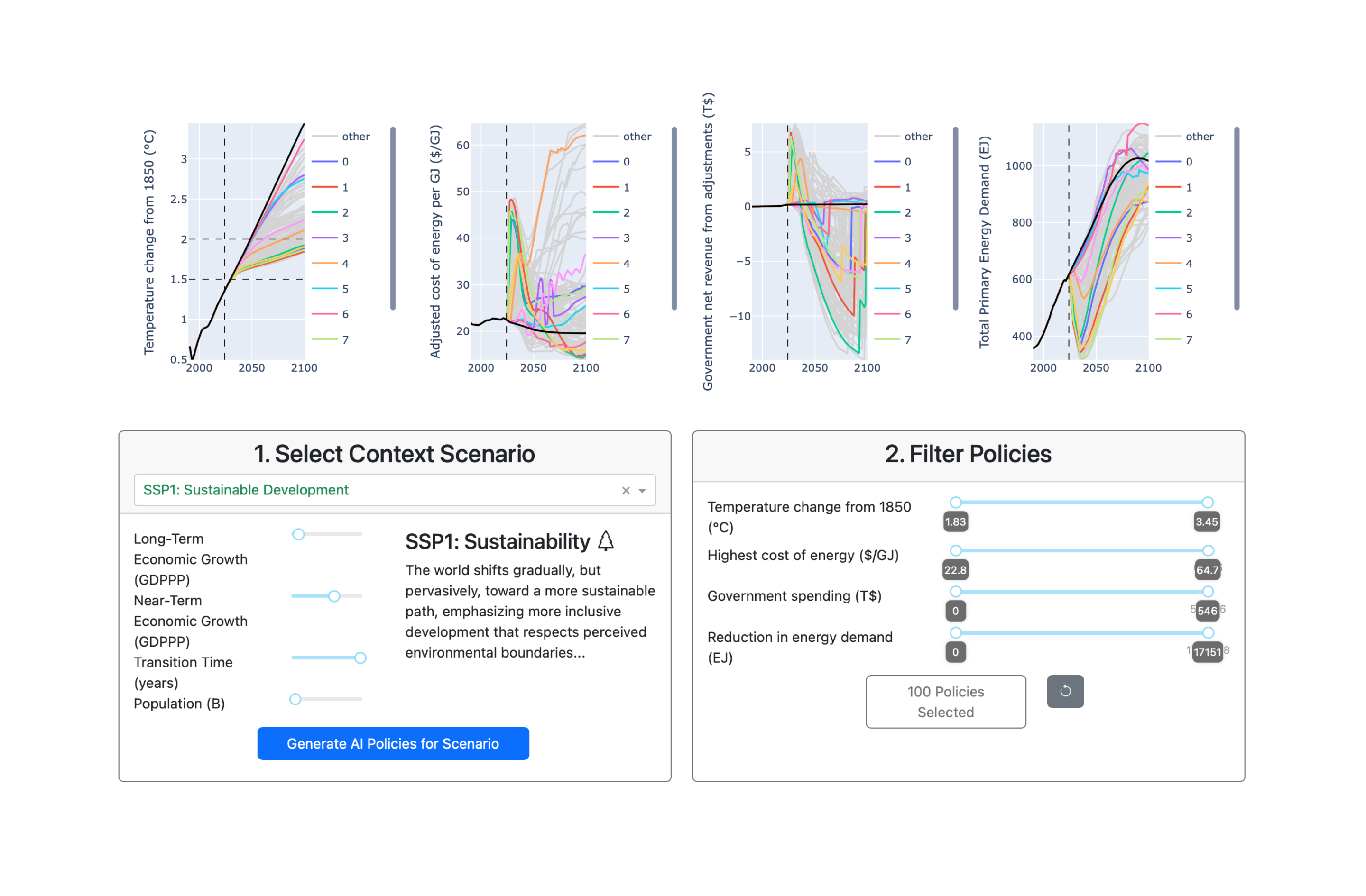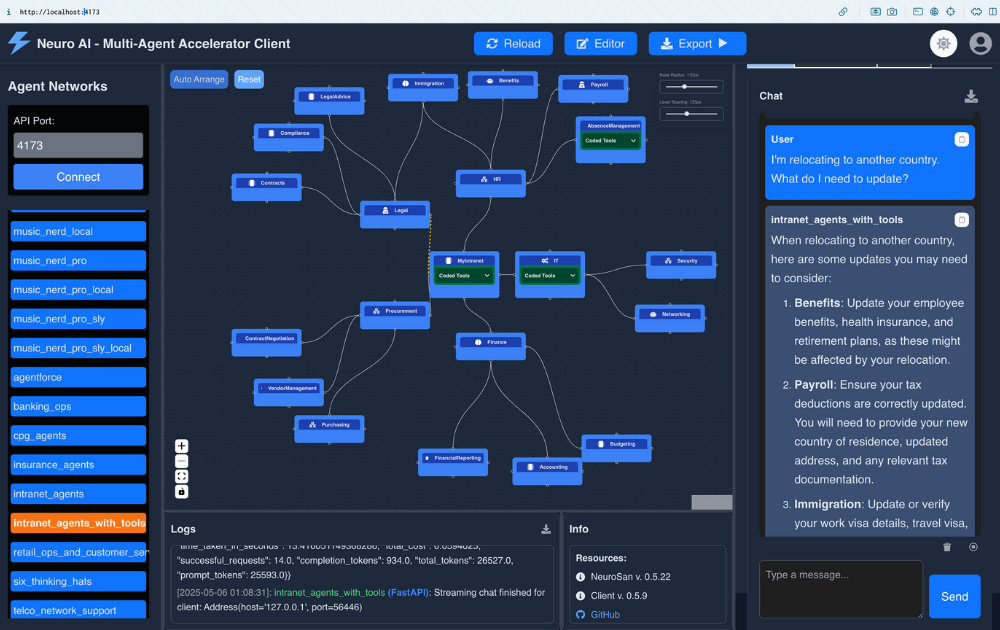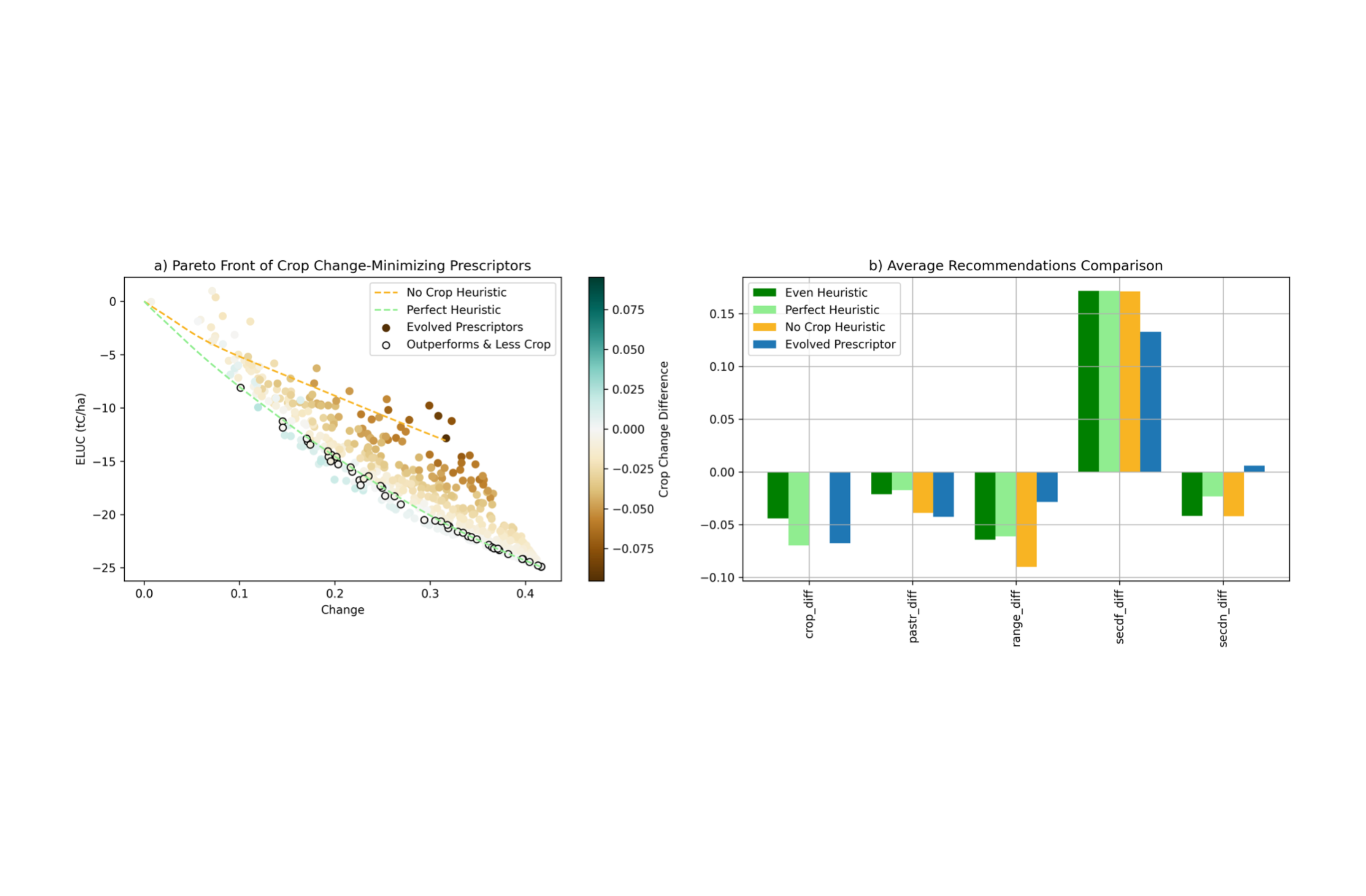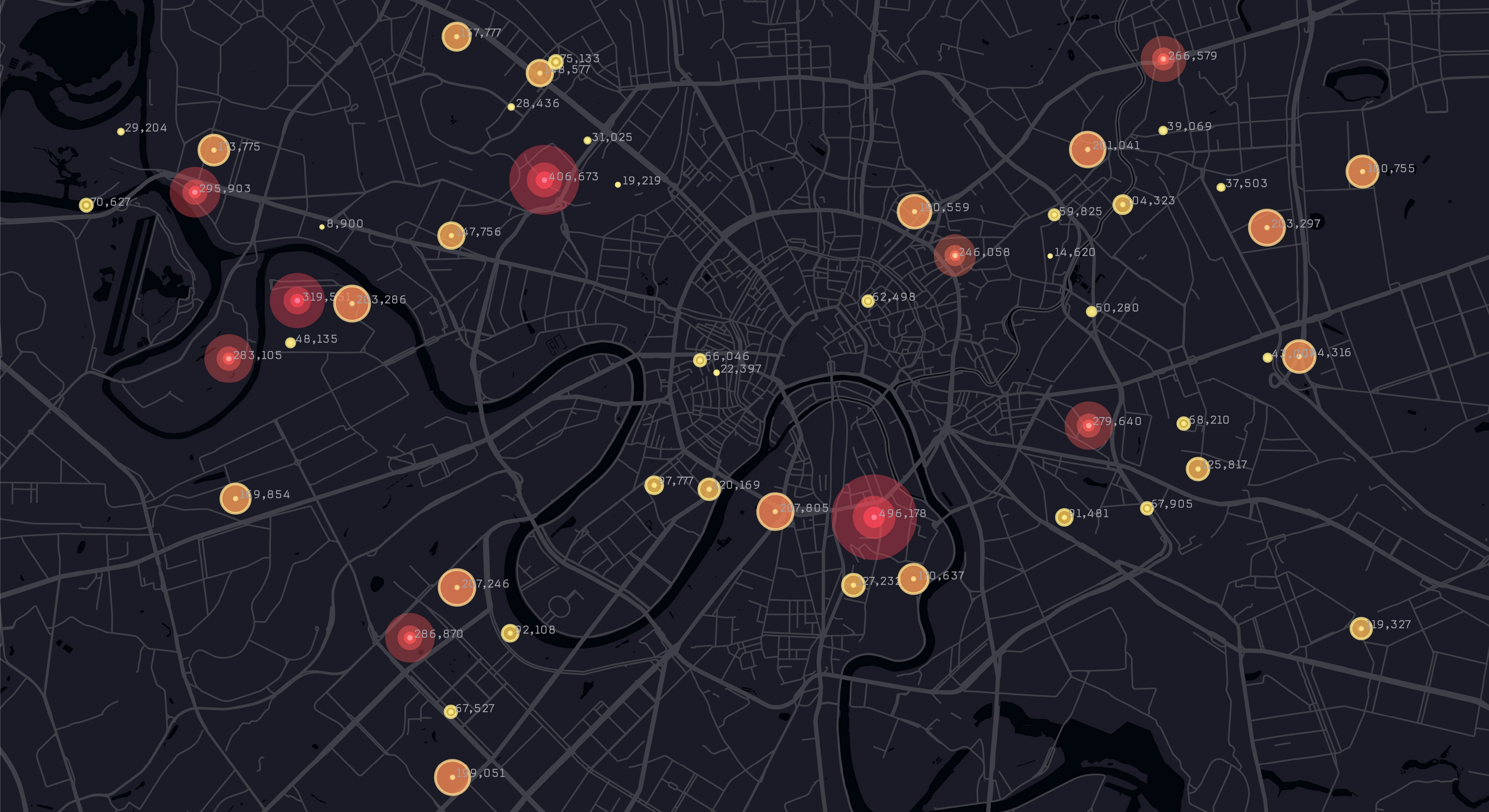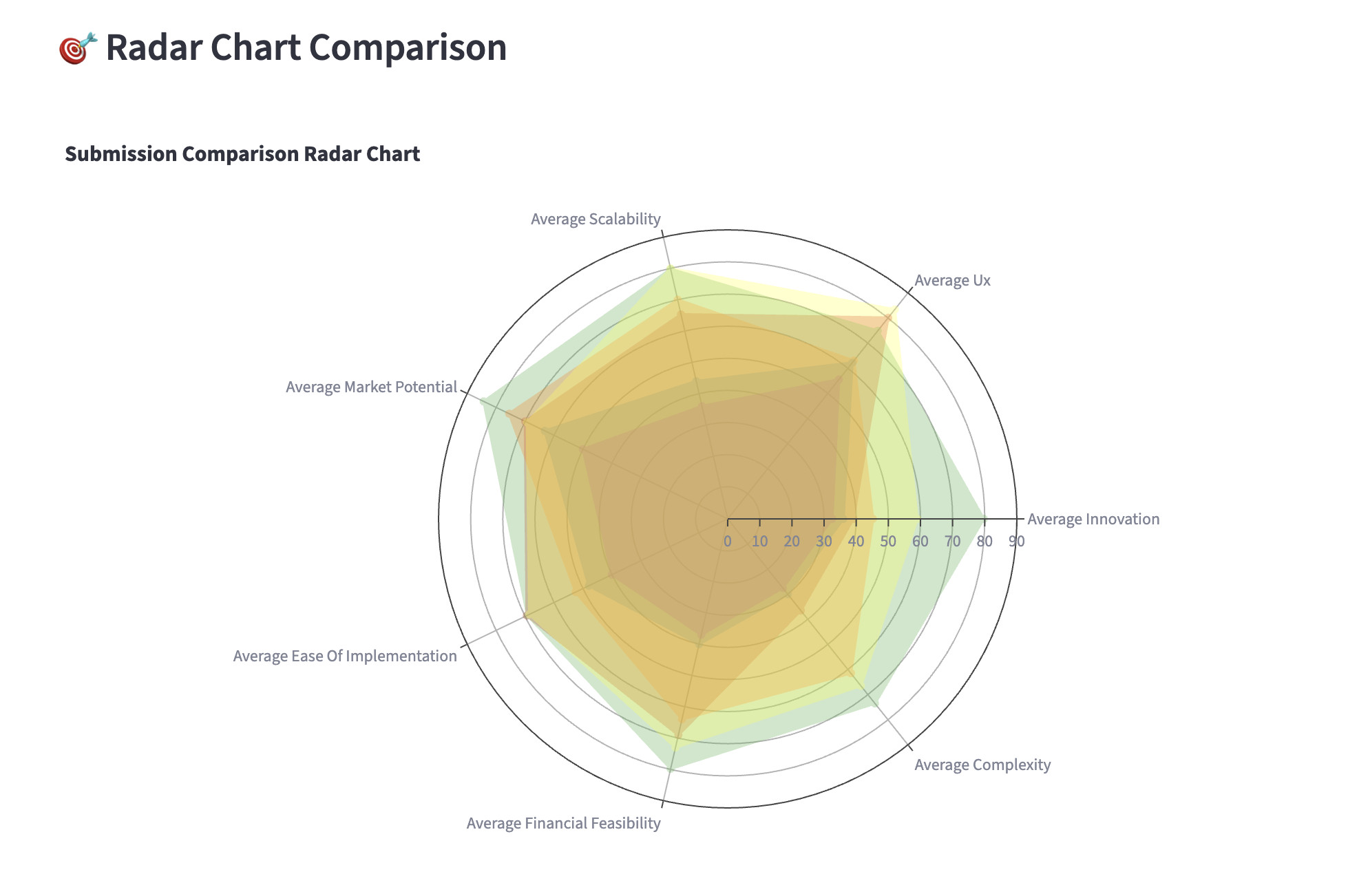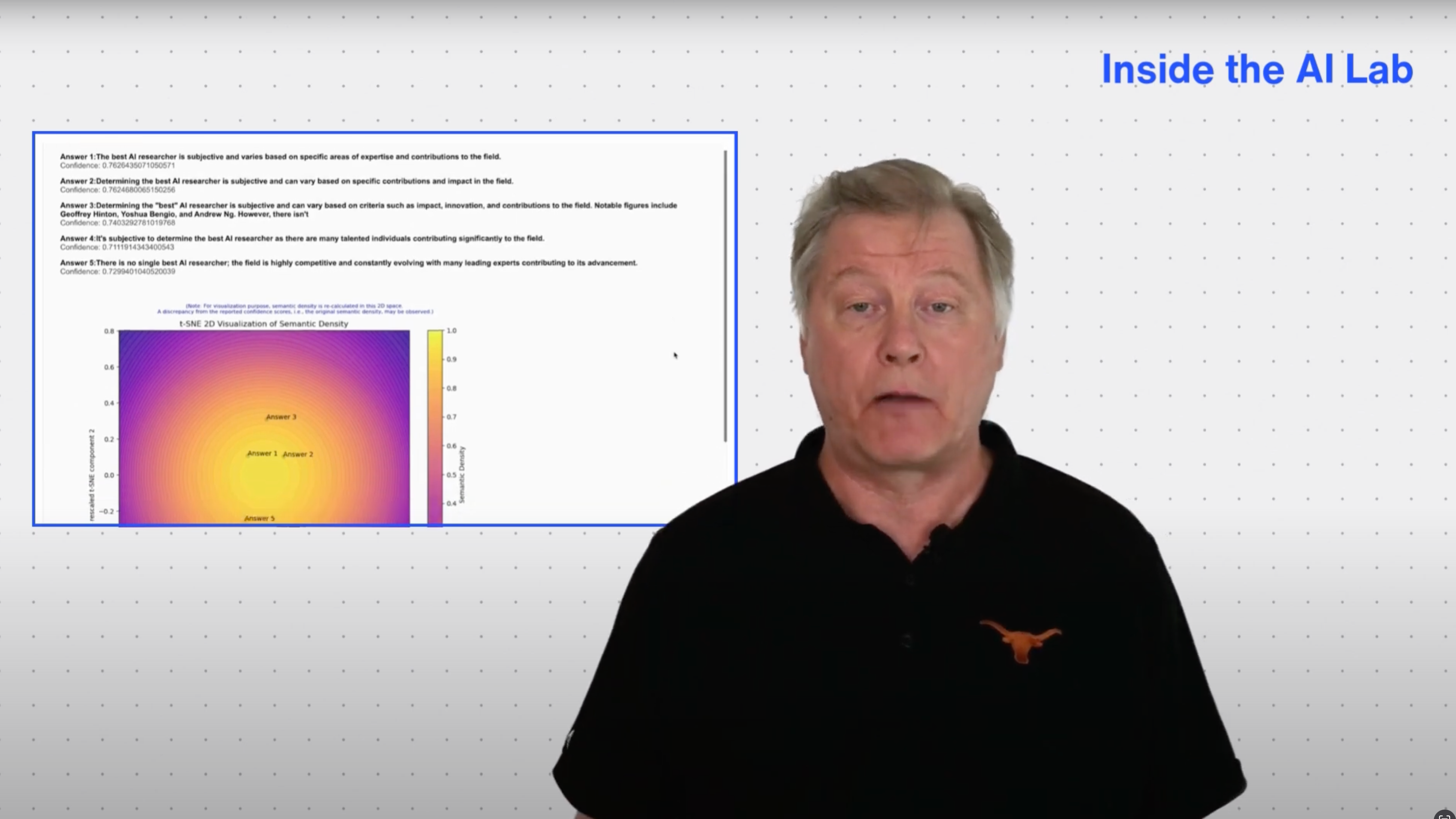June 22, 2025
Research update – June
The latest research, developments, and thought leadership highlights
Over the past few months, Cognizant AI Lab has continued to push the boundaries of applied and foundational AI research. From new publications and open-source tools to collaborative systems and demos, we’re building technologies that advance the science of AI and deliver real-world impact.
To make this work easier to explore and apply, we’ve launched our Cognizant AI Lab website — your hub for the Lab’s latest research, tools, and insights.
Below, you’ll find highlights from our most recent work. We encourage you to explore, share, and connect as we continue building responsible, decision-focused AI.
Publication updates
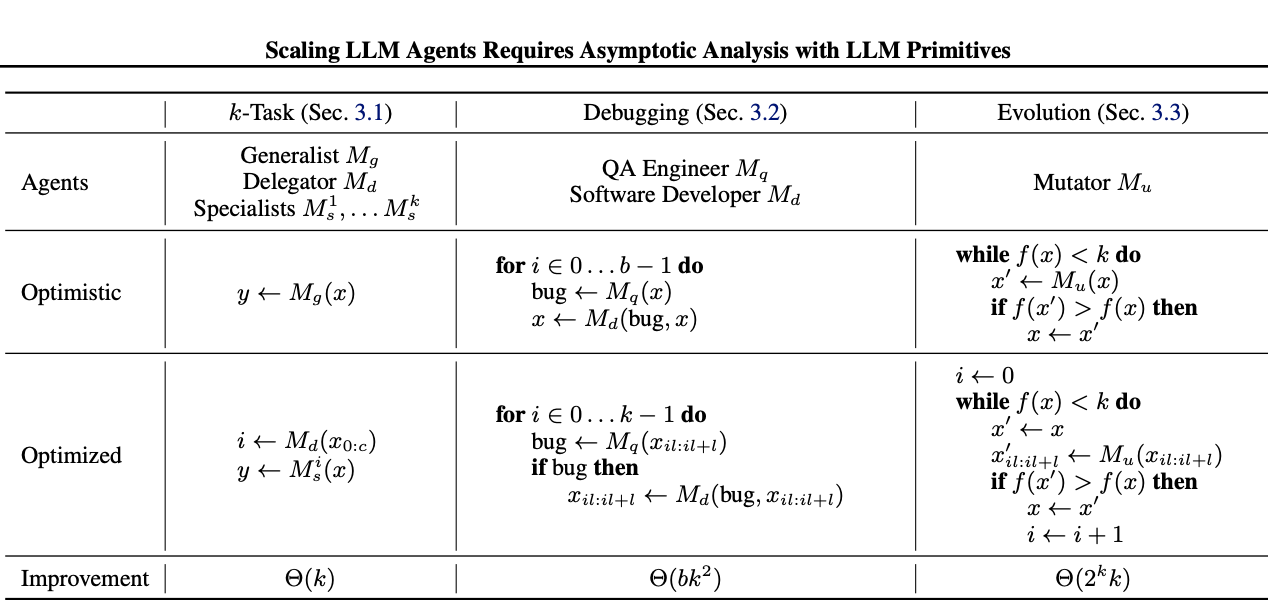
Meyerson, E. and Qiu, X. (2025). Position: Scaling LLM Agents Requires Asymptotic Analysis with LLM Primitives. In Proceedings of the International Conference on Machine Learning (also arXiv:2502.04358). This position paper argues that instead of anthropomorphizing LLMs, analyzing how the number of LLM activations scales with the complexity of the problem and with more agents should be used to reason about and develop more powerful decompositions of large problems into LLM agents.
Gonzalez, S. and Miikkulainen, R. (2025). Effective Regularization Through Loss-Function Metalearning. In Proceedings of the 2025 IEEE Congress on Evolutionary Computation (also arXiv:2010.00788). Through theoretical arguments, the paper shows how the Baikal loss function discovered by evolution results in automatic regularization (i.e. better generalization) in deep learning networks.
Young, D., Francon, O., Meyerson, E., Schwingshackl, C., Bieker, J., Cunha, H.,Hodjat, B., and Miikkulainen, R. (2025). Discovering Effective Policies for Land-Use Planning. Environmental Data Science 4:e30 (also arXiv:2311.12304). With historical land-use data and a carbon budget model, a NeuroAI system is developed to decide where and how land use could be changed optimally, suggesting that we should pick our battles wisely.
Miikkulainen, R. (2025). Neuroevolution Insights Into Biological Neural Computation. Science 387, eadp 7478. In neuroevolution, a population of neural network encodings is evolved based on how well each network’s behavior solves a task. This review article discusses how neuroevolution experiments can provide insight into the evolutionary origins of biological neural circuits, behavior, and cognitive processes.
Zoom image will be displayed
Shahrzad, H., Hodjat, B., and Miikkulainen, R. (2024). EVOTER: Evolution of Transparent Explainable Rule-sets. ACM Transactions on Evolutionary Learning and Optimization (also arXiv:2204.10438). Instead of training deep neural networks through gradient descent, it is possible to evolve rule sets to perform prediction and prescription tasks. Such rule sets are transparent and explainable, resulting in AI that is inherently trustworthy.
Open-source software and demos update
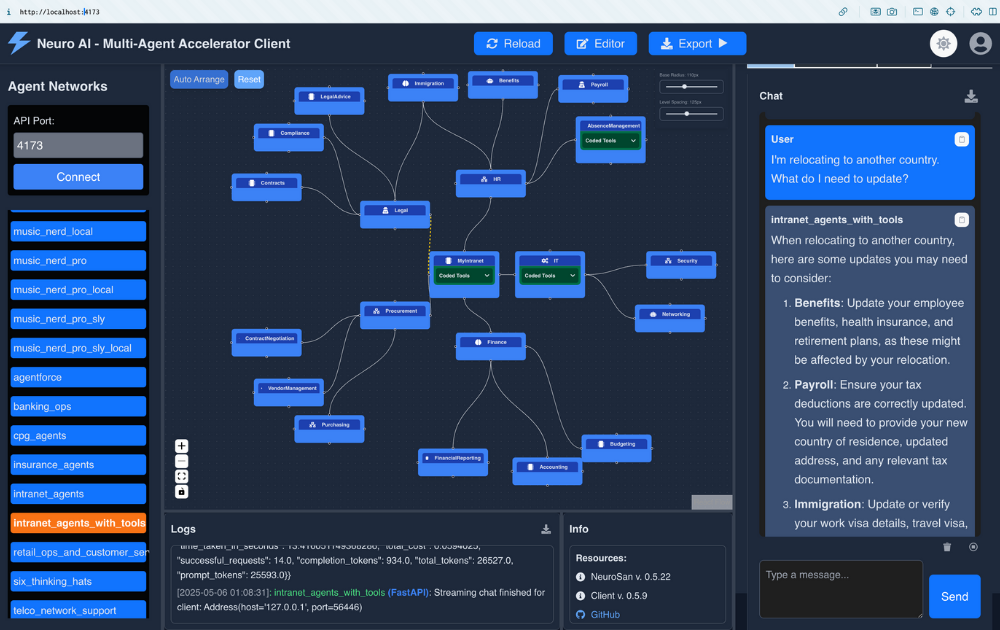
Neuro SAN (System of Agent Networks): Orchestrating Multiagent Systems (Code, Description) Neuro San is a data-driven multi-agent orchestration framework designed to simplify and accelerate the development of collaborative AI systems. Try the Neuro SAN Studio to get started with examples.
RHEA: Unlocking the Potential of Global Human Expertise (Code, Paper)
Realizing Human Expertise through AI (RHEA) unlocks the latent potential in diverse human-developed solutions by injecting them into an evolutionary process.
Semantic Density: Uncertainty Quantification for LLMs (Code, Paper)
Semantic density provides a response-wise uncertainty/confidence score for large language models (LLMs). It is off-the-shelf for any existing LLMs, and it works for free-form generation tasks.
Try the interactive Semantic Density demo: Type a query and observe the confidence in alternative responses.
LMX: Language Model Crossover (Code, Paper)
Language Model Crossover (LMX) uses large language models as the engine of evolution, driving recombination and variation for any task where solutions are representable as text.
SEPX: Solving the Permutation Problem in NAS (Code, Paper)
Shortest Edit Path Crossover (SEPX) directly recombines architectures in the original graph space, overcoming the permutation problem in traditional evolutionary neural architecture search (NAS). Its advantage over Reinforcement Learning (RL) and other methods is proved theoretically and verified empirically.
Recognition updates

INNS College of Fellows: Risto Miikkulainen was elected to the College of Fellows of the International Neural Network Society (INNS). INNS has been the premier scientific society in the field since 1987. The Fellows of the Society are recognized both for their scientific accomplishments and service to the Society. The College of Fellows includes many of the founders and long-time leaders of the field.

Neural Networks Best-Paper Award: Neural Networks, the official journal of the International Neural Network Society, selects one paper each year for the Best-Paper Award: for 2024, that paper is Bingham and Miikkulainen’s Discovering parametric activation functions. The paper was part of Garrett’s dissertation; it shows how activation functions can be customized for deep learning architectures and tasks through a combination of evolution and gradient descent.
Thought leadership updates
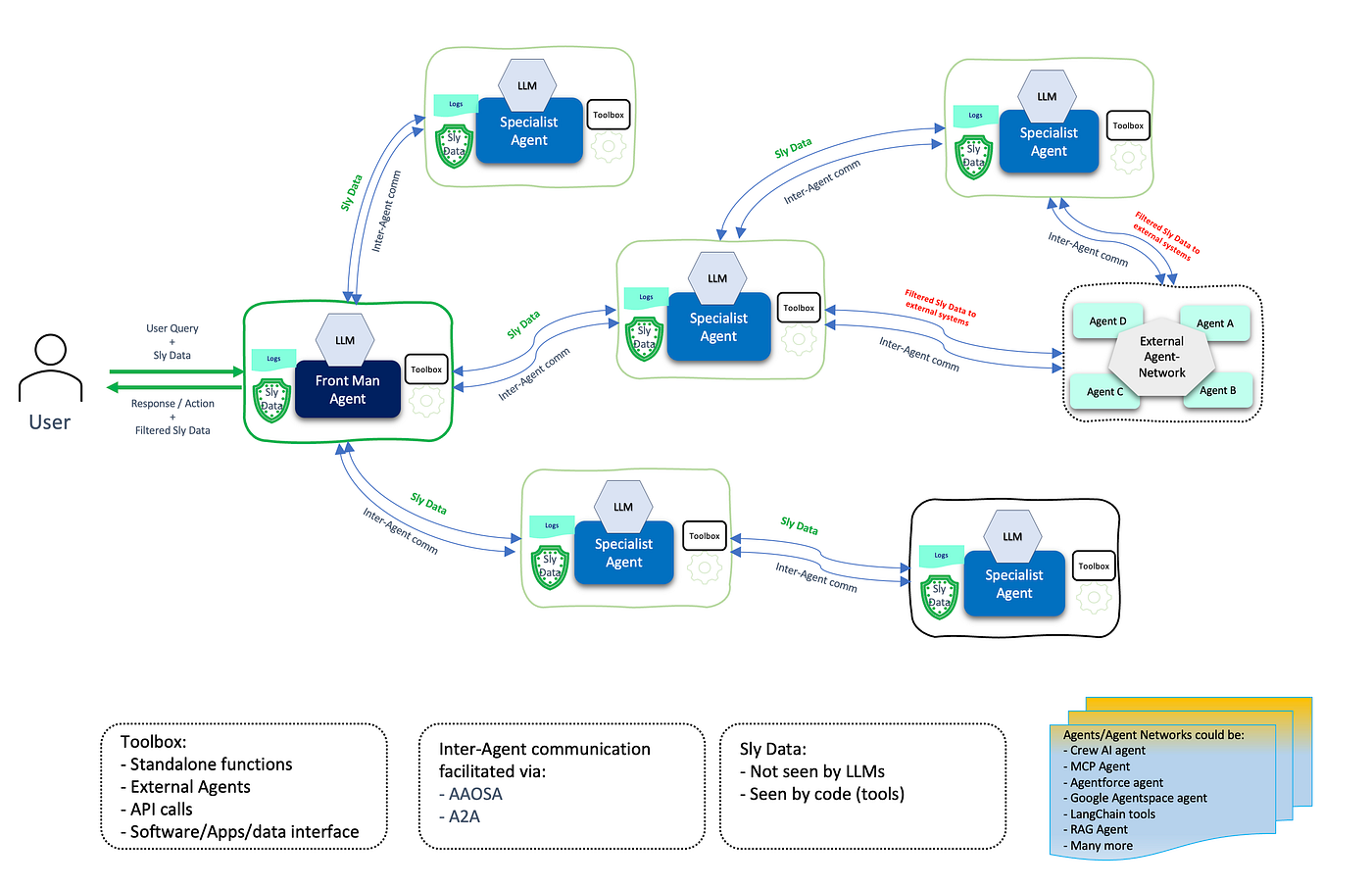
CRN: Cognizant Open-Sources Its Neuro AI Multi-Agent Accelerator: Cognizant uses its Neuro AI Multi-Agent Accelerator to create multi-agent systems for internal use and for its clients, but is now bringing it to open source to promote the creation of multi-agentic systems.

Hidden Layers Podcast: Evolving Minds: Dr. Risto Miikkulainen on Creativity, Evolution, and the Next Wave of AI: The origins, mechanisms, and opportunities with evolutionary AI, which is a technology that may lead to the next AI breakthroughs. This is a relatively short and accessible review of our differentiated technology.
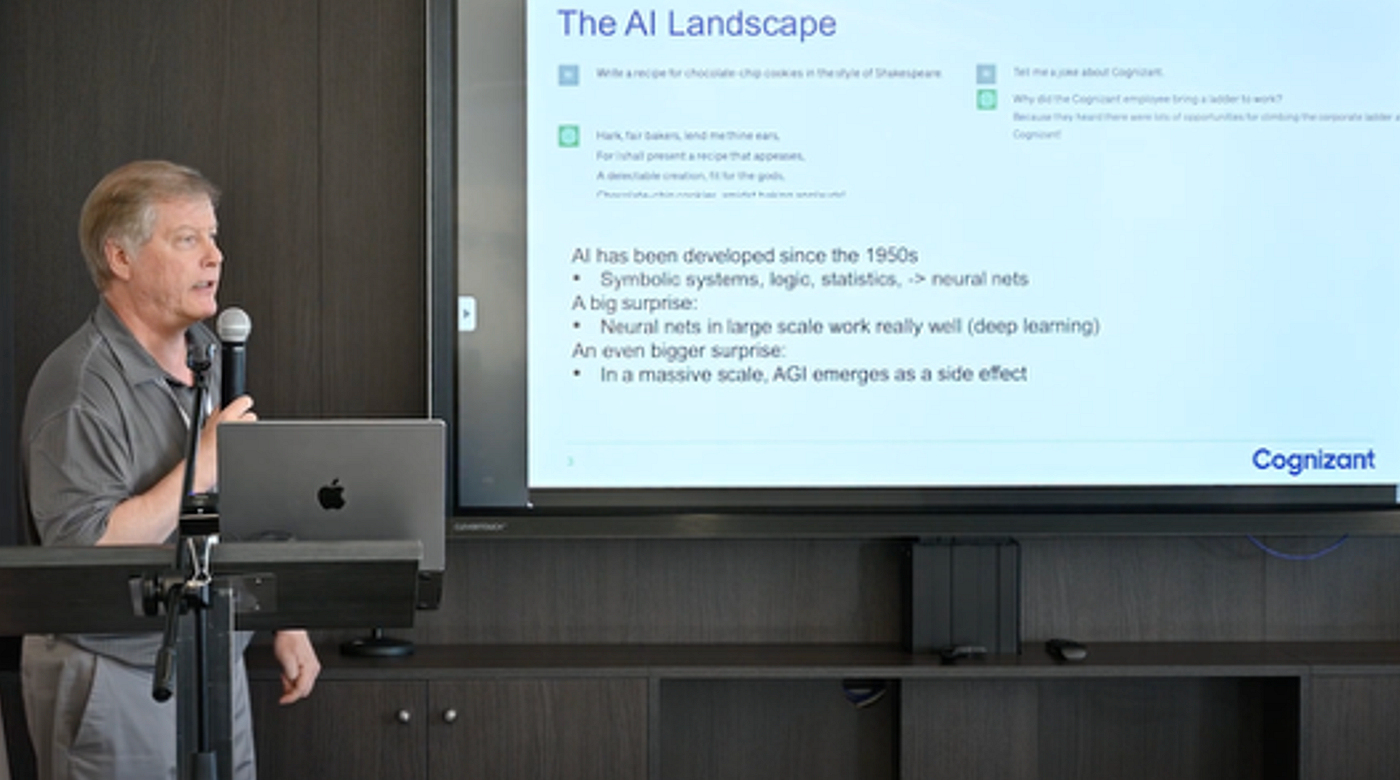
Presentation at the Raion AI Forum: Creative & Multiagent AI Decision-Making by Risto Miikkulainen. An overview of how the current AI came about and what’s next especially on creative decision-making and multiagent systems (i.e. NeuroAI and NeuroSAN).
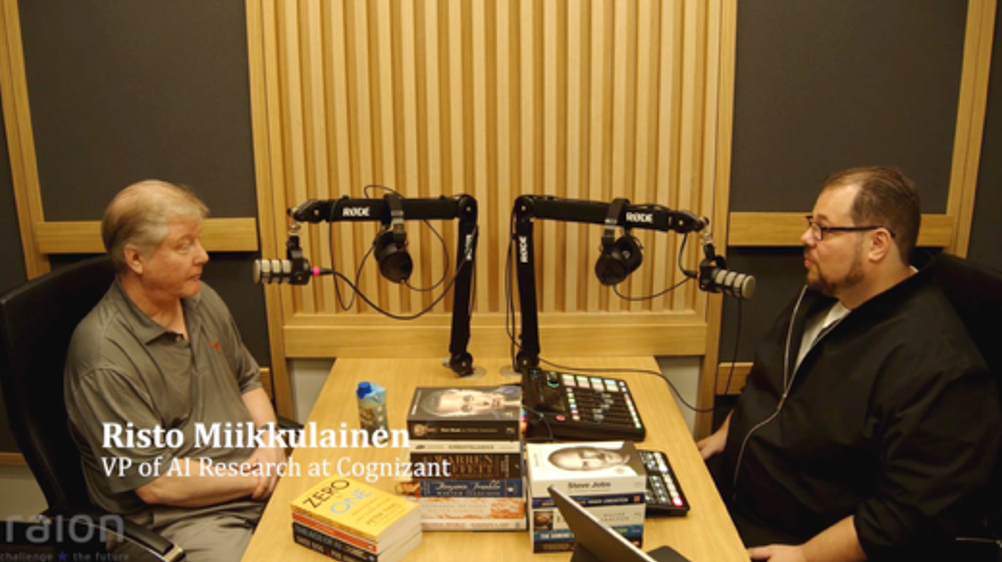
Raion Podcast: Truth, Power, and AI: Who Controls the Future? Laurence Cohen discusses the role of AI in the larger context of society with Risto Miikkulainen.
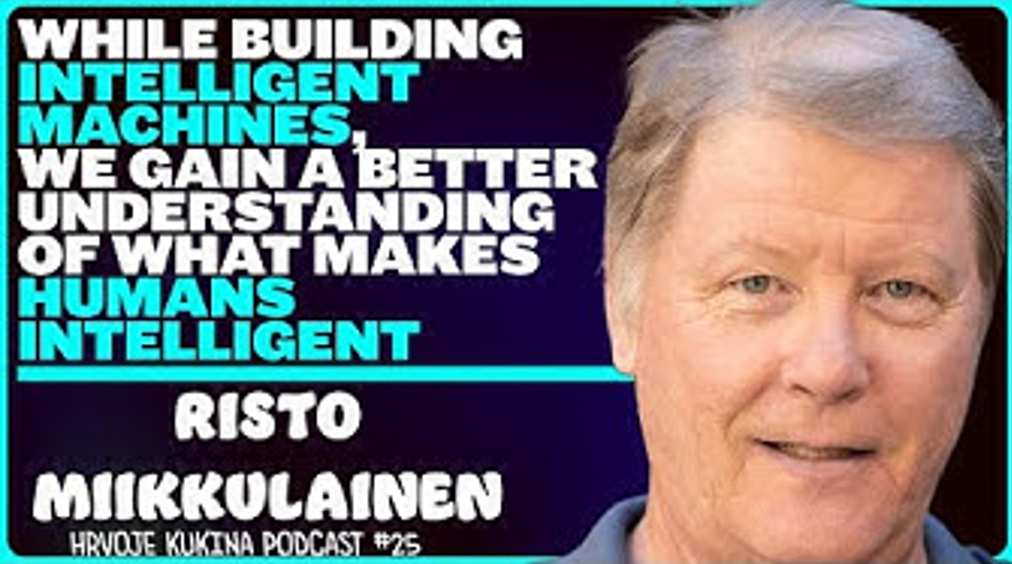
Hrvoje Kukina Podcast: Risto Miikkulainen: AI Research, Neural Networks, Evolutionary Computation. A discussion of a wide range of AI technologies, applications, opportunities, and alignment issues.
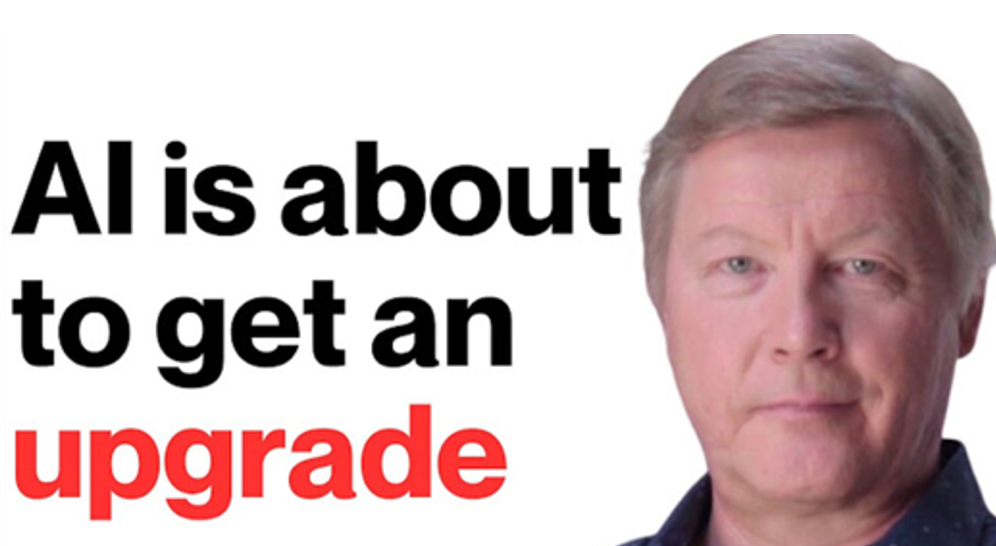
Gen Z Diplomat Podcast: Evolution Is the Missing Link. The role of evolutionary methods in the future of AI with Risto Miikkulainen.
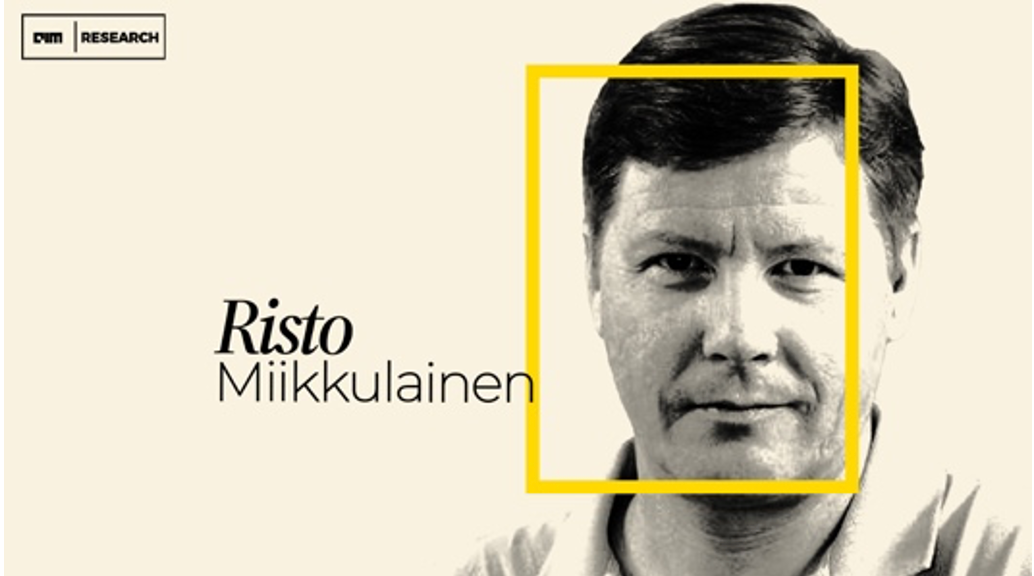
AIM Podcast on Simulated Reality: I’d Rather Trust an AI That Knows Its Power and Chooses Not to Use It. A discussion of some of the risks and safety issues with AI with Risto Miikkulainen.
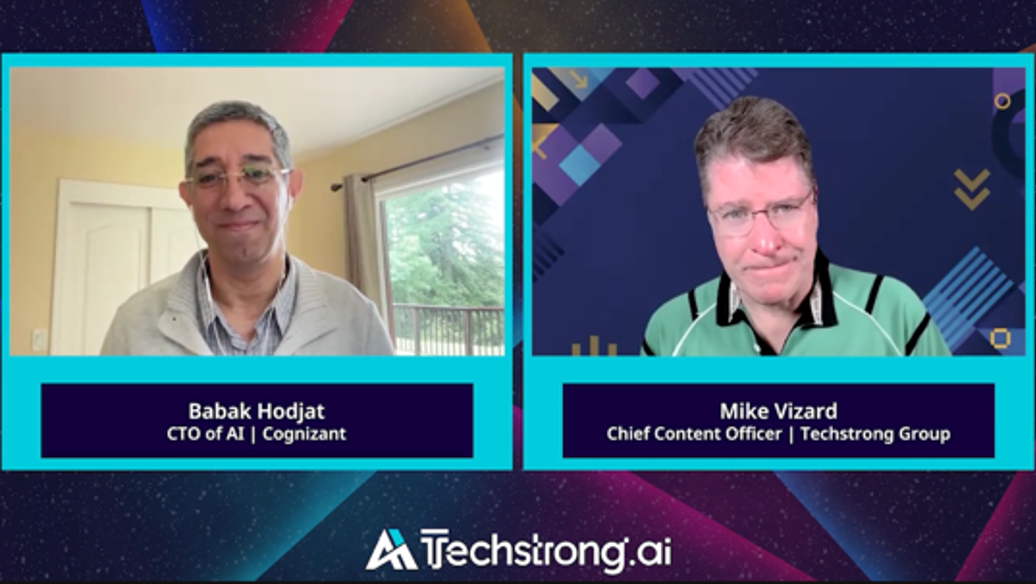
Techstrong.AI podcast: The Evolution of AI Agents with Cognizant’s Babak Hodjat. Babak Hodjat, CTO for artificial intelligence (AI) for Cognizant, traces the evolution of AI agents from the initial launch of Apple Siri to a new era of agentic AI.
For more research updates, visit cognizant.com/ai-lab.
Risto Miikkulainen is VP of AI Research at Cognizant AI Lab and a Professor of Computer Science at the University of Texas at Austin.
